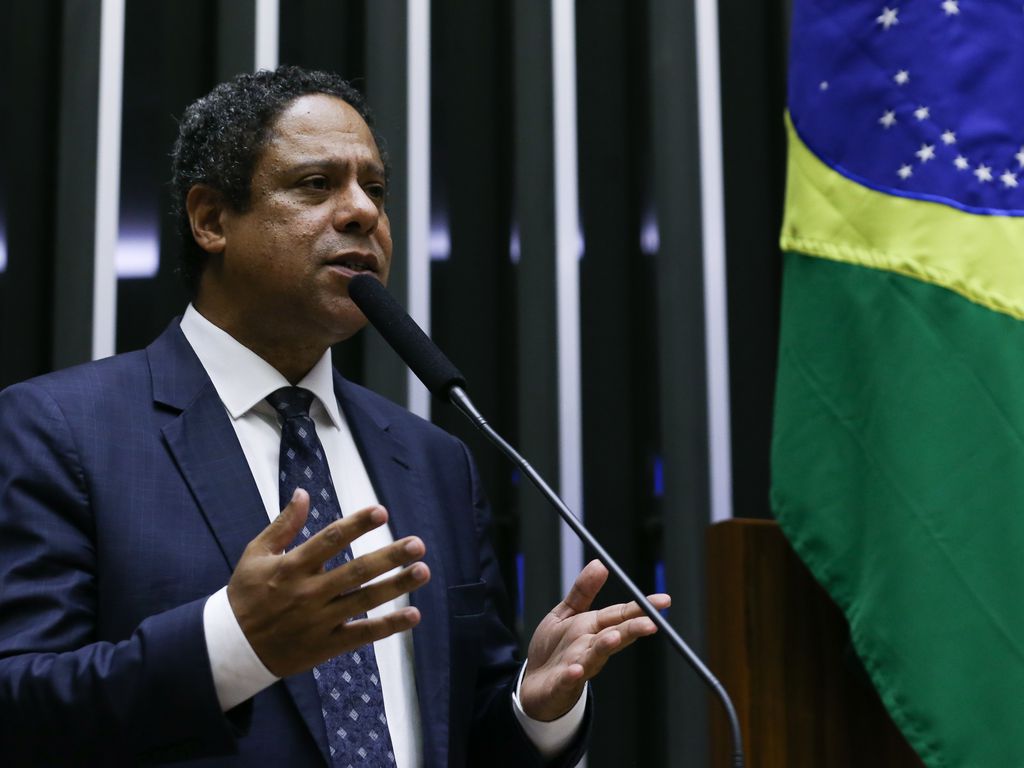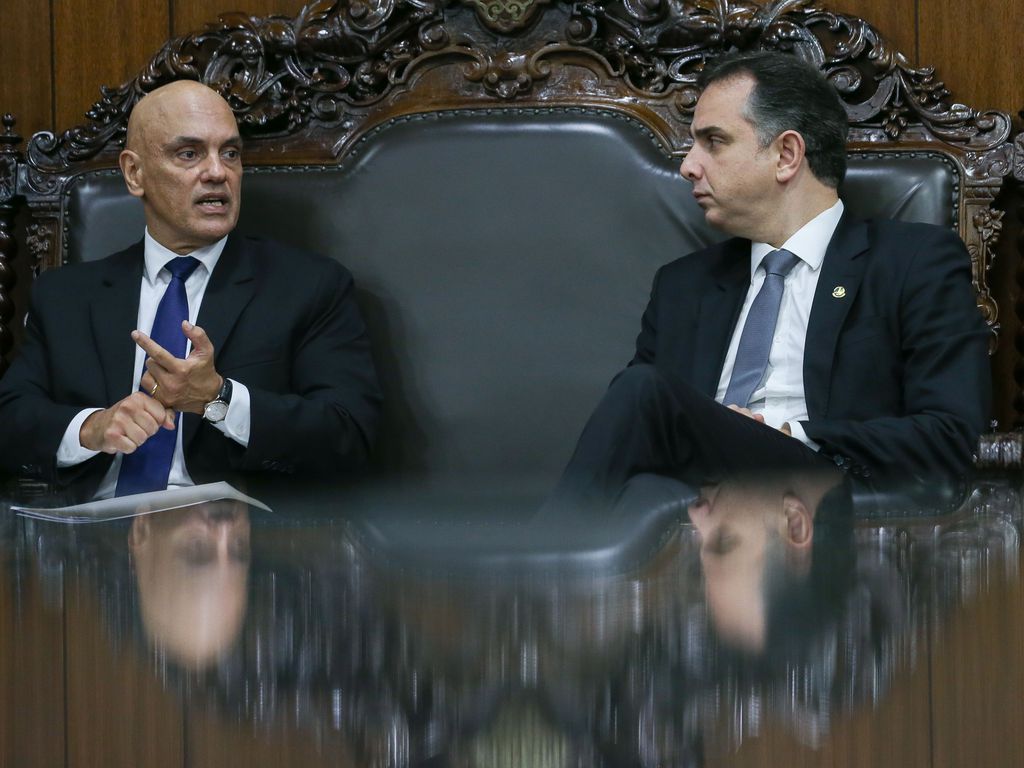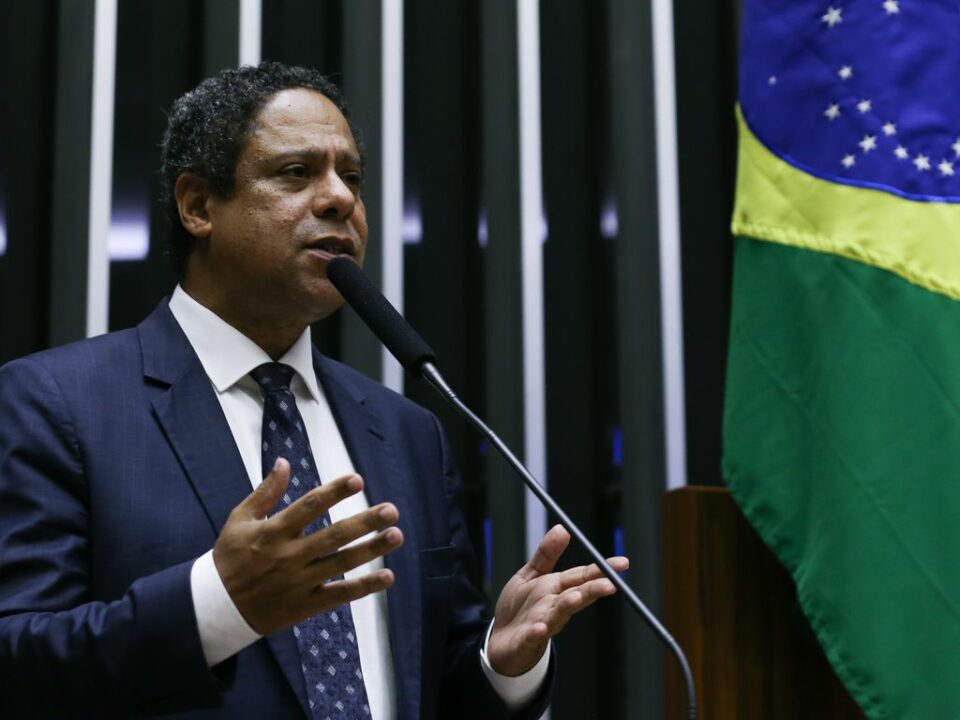São Paulo, Brazil – Backed by the federal government and a majority of Supreme Court judges, a bill that regulates social media will be voted on next week in Brazil’s Chamber. The proposal, known as the “fake news bill”, advances a Brazilian Law on Freedom, Responsibility and Transparency on the Internet.
The bill affirms that social media, messaging apps and search platforms must act to withdraw or reduce the reach of accounts and publications accused of spreading criminal content, such as the encouragement of coups, acts of terrorism, suicide, crimes against children and teenagers, discrimination and prejudice, violence against women and health violations.
Companies may be fined if they don’t follow a court decision to remove criminal content and could be held accountable in court for damages caused by content that violates the law. The proposal also deals with rules for advertising, payment for journalistic content and even government accounts on social media.
One of the most controversial aspects of the bill is the creation of a special federal agency to oversee the application of the law. The agency would have powers, for example, to act if the platforms don’t respect the legislation, including the ability to ban accounts and flag content as criminal.
The government’s opposition has already protested against the creation of the agency. Therefore, the rapporteur, Deputy Orlando Silva, must present a new version of the text before the vote, which is scheduled for next week. The project is under an urgent procedure in the Chamber and therefore has priority.
According to Silva, the purpose of the law is to make the internet a healthier environment for users. He denied that there is any interest in interfering with freedom of speech. “Freedom of speech is strengthened with a process in which the user can contest when he disagrees with a removal of content,” Silva explained.
According to the coordinator of the Working Group on Platform Regulation of the Internet Management Committee, Henrique Faulhaber, the proposal aims to moderate platforms.
“When talking about platform regulation, we mean we want to create a larger list of topics that the platform, with the so-called duty of care, must moderate or remove even before the court order. What we need to include is hate speech, terrorism and attacks on democracy,” he said.

Combat fake news x freedom of speech
The proposal has generated many discussions in Brazil about combating the spread of fake news and criminal content on the internet without affecting the freedom of speech provided for in the Constitution. Many deputies and senators allied with President Luiz Inácio Lula da Silva have expressed their support of the proposal. Lula himself has already suggested more monitoring of social media.
Minister of Justice Flávio Dino said that the proposal is not an attack on fundamental rights. “Freedom of speech is not at risk when it is regulated. On the contrary, defending freedom of speech is regulating it,” he said.
Some Supreme Court judges have also defended the need to hold platforms accountable for criminal content. One of them is Judge Alexandre de Moraes, president of the Superior Electoral Court, who played a key role in the 2022 election by combating the spread of fake news against the electoral process and the electronic vote machines.
Moraes also delivered some suggestions for the fake news bill. “We cannot think that social media is no man’s land, without accountability. It is not possible that just because they are instruments, the platforms do not have any responsibility,” said the judge. “The current system has failed.”
The rapporteur in the Senate, Angelo Coronel, stressed the urgency of approving the bill to prevent fake profiles from stimulating violence and misinformation. “We cannot confuse freedom of speech with depreciation. Many times people hide behind an anonymous profile to speak badly of someone else or to commit crimes.”
On the other hand, there are deputies and senators, mainly allied with former president Jair Bolsonaro, who are against the bill. For Deputy Marcel Van Hattem, the purpose of the bill “is to create limits that silence us and that can lead us to jail for expressing a political or religious opinion or defending an economic sector.”
Senator Eduardo Girão said that the government wants to restrict freedom of speech on the internet and establish prior censorship on social media, “an essential factor for the functioning of any democracy”.
During a Supreme Court hearing in March, lawyers for big techs companies said that a healthier digital environment could be achieved by improving existing self-regulation, without the need for a specific law.
Meta’s lawyer, Rodrigo Ruf Martins, said that the idea that more civil responsibility of platforms would result in a safer environment for the Brazilian internet is “false”. He said that the terms of use for the company’s social media, for example, already provide for the removal of content linked to crimes such as pedophilia and copyright violations.
Google’s senior lawyer, Guilherme Cardoso Sanches, said the company removes millions of posts annually, without the need for any additional legislation or court ruling: “In Brazil, in 2022, YouTube removed more than 1 million videos that violated policies on misinformation, hate speech, violence, harassment, child safety, among others.”
For the lawyer, holding platforms accountable as if they were responsible for the content they host would lead to a “generic duty to monitor all content produced by people, completely distorting the plural environment of the internet”.

Freedom of speech is not absolute
Lawyer and professor of Constitutional Law Antonio Carlos de Freitas Junior told Brazil Reports that the tradition of Brazilian law is to support freedom of speech, prohibiting anonymity and censorship. But freedom of speech has never been an absolute right in the country and can be limited to combating crimes.
“The big concern is that, today, the civil and criminal responsibility may be less than the social impact caused by a lie spread on social media. It is not possible to go back and undo the evil that was done. The impact of fake news is huge and traditional instruments no longer work. Therefore, the legislation needs to be changed,” said the lawyer.
According to Junior, nowadays, an offense or a lie spreads much faster on social media, which can end a company, harm democracy or create emotional triggers for certain people. On the other hand, he acknowledged that the change in law cannot be a “license for censorship”. The ideal is to find a balance.
“Freedom of speech is not absolute, the value of truth is also a constitutional principle that needs to be respected,” said Junior.

Self-regulation x bill
The platforms defend self-regulation, which means that they would be the only entity responsible for monitoring and removing criminal content, without interference from the State. But, for lawyer Patrícia Punder, self-regulation of social media is still an ongoing process and its evolution has been slow in Brazil.
“You can see that this evolution is slow when platforms are lenient in fighting the spread of fake news or when entrepreneurs like Elon Musk, the new owner of Twitter, believe in absolute freedom of speech,” she said.
For lawyer Francisco Gomes Júnior, specialist in digital law, the big question is how to discipline the use of platforms, guaranteeing freedom of speech, which is in the Constitution, without affecting other constitutional rights, such as the protection of honor and human dignity.
“What is already a crime cannot be allowed on the internet, such as pedophilia, racism, drug trafficking, everything that the law already typifies as criminal conduct. This is the easiest part,” said Júnior.
According to the lawyer, the “darker area” is how to deal with fake news: “How do you distinguish someone who posts a lie, without knowing it’s a lie, from someone who posts a lie with the aim of distorting facts and causing chaos? Everyone is subject to mistakes and a misinterpretation of a fact should not be penalized. But when the user’s posts point to repeated fake news practices, alarm bells should ring.”
Júnior believes that the monitoring should take place in the private area, and not by the State, which means the platforms should self-regulate, in addition to the use of a fully functioning reporting channel. Only if the platform fails to remove criminal content would the lawyer defend its accountability in court.
The post Proposed bill to regulate social media in Brazil raises discussion on freedom of speech and the fight against fake news appeared first on Brazil Reports.
The post Proposed bill to regulate social media in Brazil raises discussion on freedom of speech and the fight against fake news appeared first on Latin America Reports.




